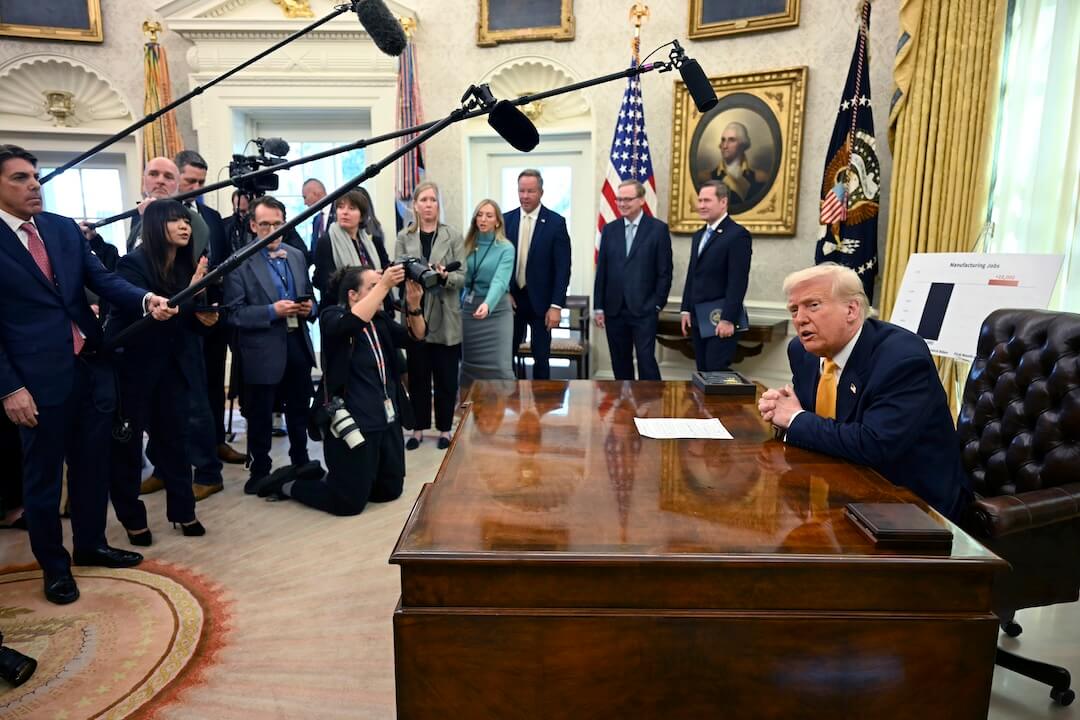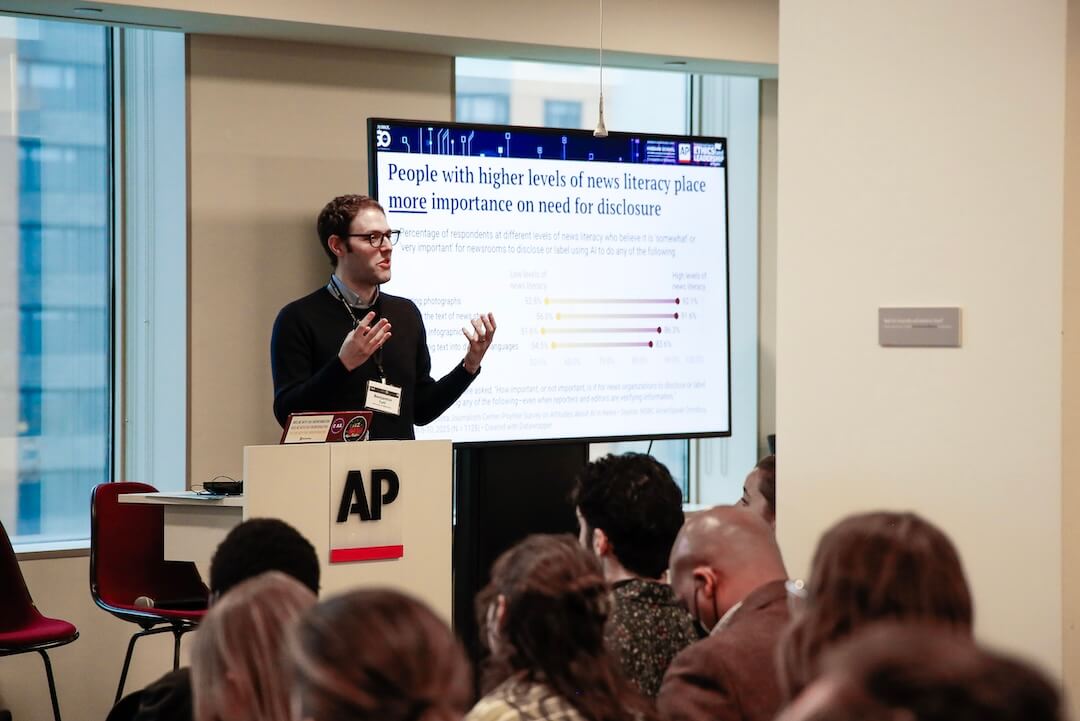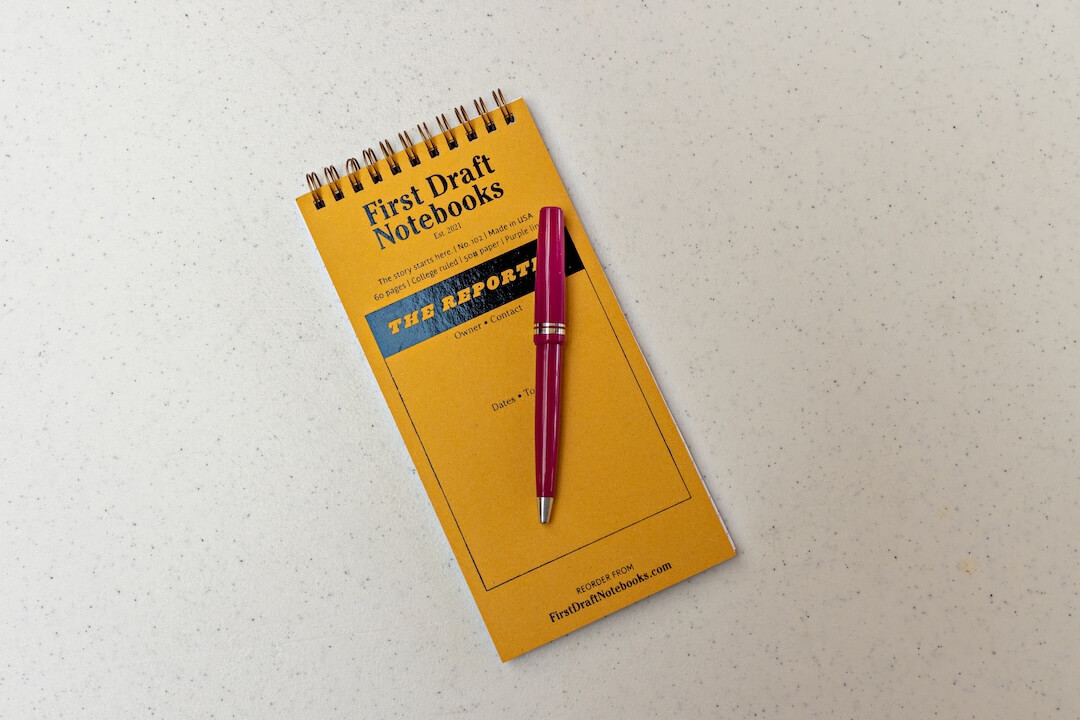Dear Barbara:
I am a college journalism professor and I hear that Poynter has a lot of great resources to help me train burgeoning journalists this fall. Please confirm.
Dear Reader:
Roger that. Here are my go-to recommendations for journalism professors looking to enhance their own expertise this fall.
Free resources include:
- This newsletter (thank you so much for reading!)
- The Lead newsletter for student journalists
- WriteLane: The podcast for journalists who like to talk shop, and for students and educators to learn more about process and craft.
- Cleaning Your Copy: Grammar, Style and More: A self-directed course to help understand the basics of grammar, spelling, punctuation and AP style.
- The Writer’s Workbench: 50 Tools You Can Use: A self-directed course containing essays — written by a master of the trade — on 50 writing tools that are essential to everyone who wants to be a better writer.
- Conducting Interviews That Matter: A one-hour webinar to help conduct stronger interviews from Joshua Johnson, former host of the public radio program “1A” and “The Week with Joshua Johnson” on MSNBC, now hosting “Now Tonight with Joshua Johnson” on NBC News Now.
- Open Records Success: Strategies for Writing Requests and Overcoming Denials: A one hour, self- directed course on how to word requests and overcome objections and denials from public agencies, with examples of real-world requests and their results.
- Understanding Title IX: A one hour, self-directed course on what Title IX is, how universities rely on it and how to report on it. Designed with student journalists in mind.
Among our very best paid offerings are:
- Professor’s Press Pass: Weekly case studies taken from that week’s headlines about the ethical and business problems facing journalists. Includes background information and classroom-ready discussion questions. ($12/month or $100/year per professor)
- Language, Math and News Literacy Certificate: 10-hour, self-directed course. This new triple certificate from Poynter will ensure students have mastered the fundamental skills needed to pursue a career in communications.($64.95 per student)
- The Language Primer Certificate: Five-hour, self-directed course. Our most popular primer is tough — tough enough to mean passing it earns students a certification. Updated in 2020. ($29.95 per student)
- Math for Journalists Certificate: Five-hour, self-directed course. What journalists truly need to understand about math and mathematical concepts. Never confuse percentage and percentage points again. Updated in 2020. ($29.95 per student)
- Poynter ACES Certificate in Editing: Ten-hour introductory level certificate containing self-paced courses. ($150)
Dear Ms. Allen,
What about fact checking? The midterms are coming up, and I heard Poynter is a hub for great fact checking resources. Is that true?
Dear Very Polite Reader,
And the best part is that many of our offerings are free:
- Is This Legit? Digital Media Literacy 101: Poynter’s MediaWise and its Campus Correspondents launched a new self-guided course to help your students spot and stop online misinformation. This will have your students fact-checking the suspicious posts they see in their news feeds like a pro.
- Campus Correspondents masterclass video on Youtube: An abbreviated version of our virtual Campus Correspondents in-class trainings (and keep an eye to this newsletter for your chance to sign up in the weeks to come).
Dear Barbara,
Do you have one of those time-turner things from Harry Potter that I can wind up to push the start of the semester back another two days weeks months?
Dear Reader,
No. Unfortunately, Harry Potter isn’t real, nor is his magical world. I’m sorry.
Reporting on the economy
I got an email from Mary Crowley at the University of Maryland Global Campus looking for resources on helping students report on the economy. She wrote, “Too many students have no clue even what a GDP is, let alone how the inflation rate is calculated or (who is) making decisions about interest rates that are driving up the cost of their student loans.”
Here’s what I found:
How to Cover Economics: An Introduction (Pressbooks OER)
Basic Economics for Journalists ( Konrad-Adenauer-Stiftung Foundation)
How The Economic Machine Works by Ray Dalio (Youtube, 30 minutes, 31 million views)
Economy Definition (Investopedia)
Know of something I’m missing? Let me know!
Dear Barbara,
What about one of those wand/voice amplifier spells? Like they use to call the Quidditch matches? I could really use that in front of my classroom.
Dear Reader,
We have talked about this.
What about sports issues?
Walter Middlebrook, the Foster Professor of Practice at Penn State, read my last newsletter about story ideas and had two excellent suggestions to expand on that list.
“You might keep in mind that many students are interested and will be wanting to explore other topics, like sports:
- The shakeup of the college football conferences and the ultimate effects on the NCAA
- The NIL drama and how that’s affecting college teams and players.
Mind you, I am not a fan of students pursuing sports over news, but as an instructor, I’ve learned to be inclusive and force these students to approach sports issues from a newswriting and news reporting perspective.”
With that in mind, here are some primers on NIL and conference realignment:
- What is NIL in college football? Here’s what you need to know (Sports Illustrated)
- What is NIL?: Everything you need to know about the NCAA and name, image and likeness (The Athletic)
- College football conference realignment tracker (ESPN)
- Just as an aside, I had to laugh at this article from the Guardian that — while outdated — has the best explanation of college football to nonfans that I’ve ever read. I hope they update it. It’s hilarious and helpful.
Other helpful resources to keep at your fingertips
I know that the JEA (Journalism Education Association) is generally regarded as serving the scholastic community, but it has sophisticated offerings in its deeply resourced databases. Membership is less than $100, and I can confirm that’s money well spent. And hey, your students needn’t know that the offerings were designed for middle and high school students!
If you are advising a student media organization and you aren’t a member of the College Media Association, spend the $75 to join. The listserv alone is worth it, not to mention the advice, insight and camaraderie you’ll get from this outstanding and supportive group of peers. And a plug: Their annual conference with Associated College Press and SJF is in October in D.C.
A round of stray links for your classroom or newspaper’s consideration
Is your school one that’s adding a cultural center for disabled students? Why or why not?
How long until your campus goes cashless?
From the Global Investigative Journalism Network: 9 Watchdog Reporters and Lessons Learned from Their Mistakes (Pro tip: Discuss the second anecdote with your students. Acceptable conduct or journalistic no-no?)
I bet this one sounds familiar: The growing culture of censorship by PIO (Columbia Journalism Review)
This might be an entire class on its own: The Law & Justice Journalism Project aims to help journalists covering crime and the U.S. legal system (Nieman Lab)
Higher ed issues
- We Asked College Health Centers How They’ll Deal With Abortion Restrictions. They Aren’t Saying. (Chronicle of Higher Education)
- Clery Act alert: Preventing Serious Accidents on Campus | A new bill introduced in the House would require colleges to submit information to the federal government on serious injuries and deaths that occur from accidents (Inside Higher Ed)
- For those of us who want to stay current: #RushTok Is Back. Here’s Everything You Need To Know. (The Skimm)
DEI stories for inclusion and inspiration
- Journalism’s influential awards lack diverse judges (The Objective)
- The time for more diverse leaders in newsrooms is now (The GroundTruth Project)
- A gold star for the compelling first-person narrative on this: Newsrooms need to hire more working-class journalists (NBCU Academy)
One last thing
Dear Reader,
Hey, I was wrong. You can get a time-turner. I don’t know how well it works. Will you report back to us if you make it back from the past? Still no word on an amplifier.
Resources for educators
- Get access to a growing library of case studies — Professor’s Press Pass
- Teach your students how to master the flood of suspicious information taking over the internet with this free, self-directed course from MediaWise’s Campus Correspondents.
- United Facts of America: A Festival of Fact-Checking (Virtual event) — Sept. 27-29. Get tickets.
I want more Poynter resources for college journalism. Make a contribution.







